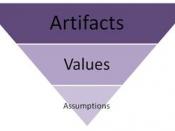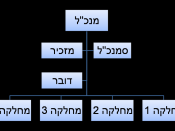Humans are the base of any organization, its essence and its wealth. But from the management point of view it would be inappropriate to speak about humans in general since every person is different. People act differently; they have different skills, and different approach to what they are doing in the organization as a whole and to their duties. Their motives and needs are individual. Finally every person has his own perception of the reality. All this means that managing people within an organization is extremely challenging task, but at the same time it is a vital management function for the prosperity of an organization.
A manager needs to know people he is working with very well so that he could successfully manage them. But at the same time his relationship with employees should not pose something of a problem.
Organizational behaviorOrganizational behavior is based on two concepts: management of interpersonal relationship and management of people's behavior.
These and personnel management form system of managing human resources. Management is the art of getting things done by others, with this the overall performance of the company to a great degree depends on changing the relationship between managers and employees rather than on raise of salary. The change of attitude towards people may become an impulse to high efficiency. The concept of management from the organizational behavior point of view is that company's effectiveness depends on the effectiveness of its employees.
The basic elements of organizational behavior are social interaction, motivation, power and leadership, organizational culture, communication system and quality of life.
Organizational cultureModern management considers organizational culture to be a powerful strategic tool which helps to direct all divisions and employees to the common goals. Organizational culture represents values and norms which are accepted and applied by employees and which...



Author's contribution?
Nothing much from the author's pen, i guess. The topic needs insight into the business requirements and OB concepts.
0 out of 0 people found this comment useful.